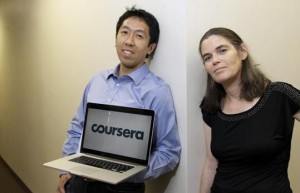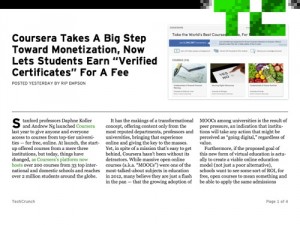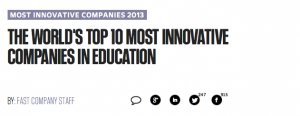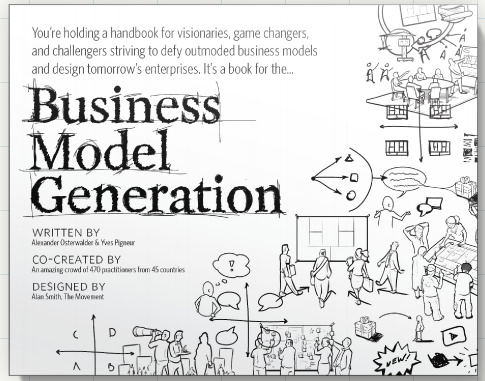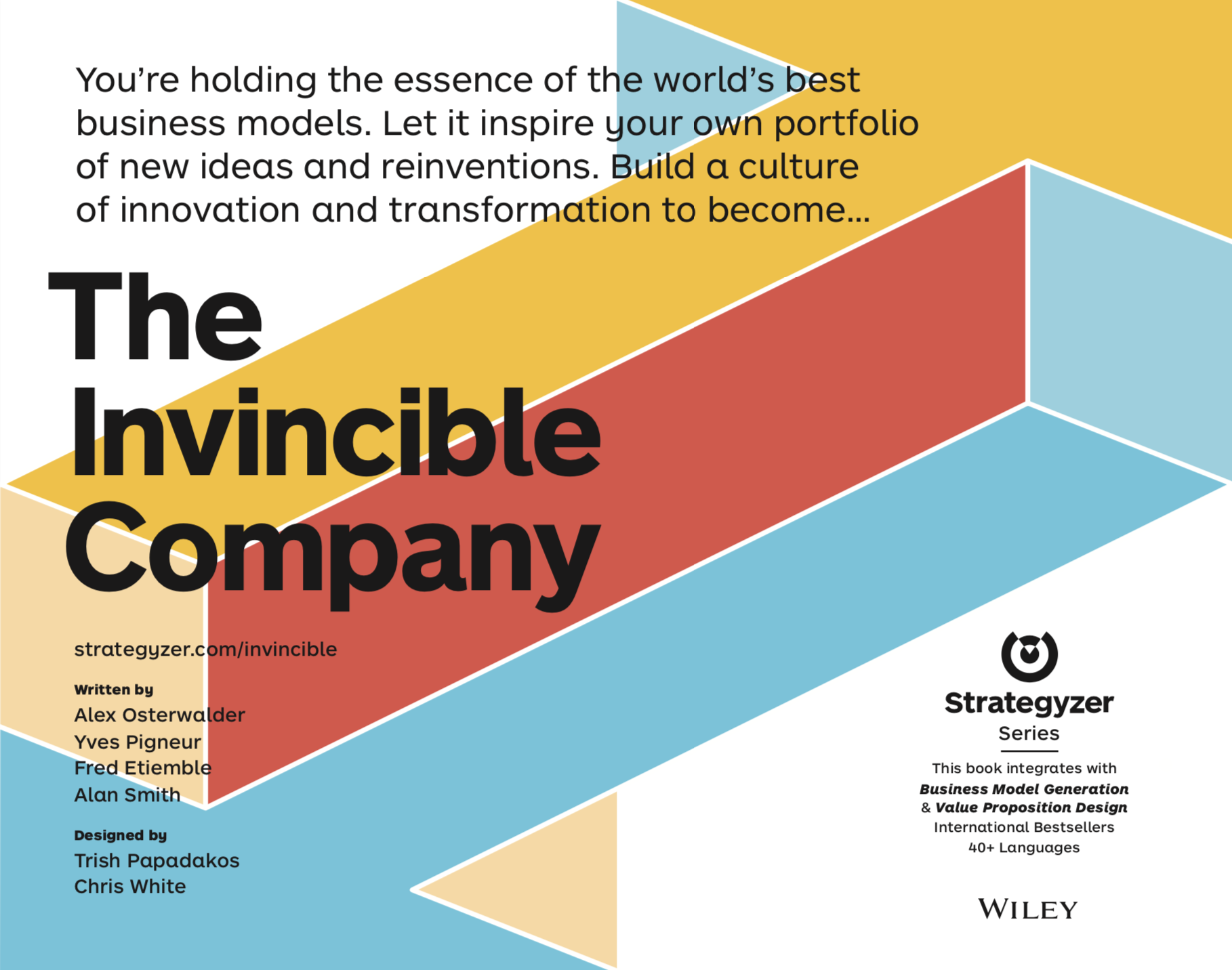Coursera: the online revolution
Talk and chat with Andrew Ng, director of the Stanford Artificial Intelligence Lab and co-founder of Coursera (web), during a NUS School of Computing seminar.
“We are at the cusp of a major transformation in higher education. In the past year, we have seen the advent of MOOCs – massively open online classes (MOOCs) – top-quality courses from the best universities offered for free. (…). At Coursera, as of December 2012, we offer over 200 courses from our 33 university partners, and have over 2 million students from 196 countries. (more)
An example of course on Coursera, using the BMGEN canvas, is “Developing Innovative Ideas for New Companies” by James Green, University of Maryland (coursera).
There is another similar platform, Udacity, on which one can find the course by Steve Blank “How to Build a Startup – The Lean LaunchPad” (udacity).
EPFL also launched a MOOC platform (moocs) in Lausanne. An example of course is “Functional Programming Principles in Scala” by Martin Odersky (web). EPFL President Patrick Aebischer has recently announced a “few weeks” sabbatical in Africa to study the french speaking distance learning needs and expectations (TSR).
An interesting look and reflection on the “The Future of Colleges & Universities” (web) is given by Thomas Frey, so-called futurist speaker, even if a little bit outdated (2009). His intro metaphor of the “Roman numerals”, which were a huge system problem and prevented an entire civilization from furthering the field of math and science, is amazing. His provocative contention is that our university system could be the equivalent of Roman numerals, preventing us from doing great things.
A recent more critical view on online courseware (Forbes), Why Online Courseware Can’t Replace A 4-Year Degree, by Eric Savitz
and a last post on TechCrunch entitled Coursera Takes A Big Step Toward Monetization, Now Lets Students Earn ’Verified Certificates’ For A Fee (blog)
Another recent article on FastCompany THE WORLD’S TOP 10 MOST INNOVATIVE COMPANIES IN EDUCATION
Some more general references on the future of universities and business school:
Christensen, C., Eyring, H. (2011) The Innovative University: Changing the DNA of Higher Education from the Inside Out, Jossey-Bass (amazon)
Khurana, R. (2010) From Higher Aims to Hired Hands: The Social Transformation of American Business Schools and the Unfulfilled Promise of Management as a Profession, Princeton University Press (amazon)
Weisbrod, b., , Ballou, J., Asch, E. (2010) Mission and Money: Understanding the University, Cambridge University Press (amazon)

